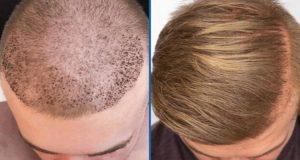Hypoglycemia diet is recommended for those who are suffering hypoglycemia. Hypoglycemia is a medical condition that is characterized by low blood sugar. People suffering with hypoglycemia may experience sweating, weakness, dizziness, hunger and confusion. If you are suffering from this condition, it is recommended that you follow a hypoglycemia diet to help you handle your symptoms.
Food Diary
If you want to start hypoglycemia diet, it is important that you start a food diary. Jot down all the foods as well as corresponding reactions towards the food to rule out any hidden allergies. This is also the best way to eliminate foods, which trigger your reaction, and causes hypoglycemic like symptoms.
After a week, review all the foods that you had jotted down in the food diary. If you had drink a cup of milk and you felt confused after one hour, you may need to eliminate milk from your personal hypoglycemia diet.
Also Read
Foods to Avoid
The key in the success of hypoglycemia diet is avoiding foods that trigger your symptoms. Some of the foods that you should avoid may include:
- White flours
- White rice
- White pasta
- Milk
- Ice cream
- Fried foods
- Refined sugar
- Alcohol
- Tea
- Foods that are highly processed
Do not eliminate these from your diet all at once; try to eliminate them one by one for better results.
Foods to Eat
As you eliminate foods that trigger your symptoms, it is recommended that you eat raw veggies, whole grains and skinless lean meats. Some of these foods may include:
- Green leafy veggies
- Whole grain breads
- Turkey
- Pasta
- Chicken
It is also important that you divide your meals into five or six meals per day. Schedule your breakfast, lunch, dinner and snacks in a specific hour every day. This will keep you blood sugar stable and may prevent any attacks of hypoglycemia from occurring.
Fiber and Hypoglycemia
A soluble fiber plays important role in hypoglycemia diet. Soluble fiber dissolves in the body when it enters your system. It turns into a jelly like substance. Its role is to delay digestion and by slowing rate of movement of food in the gastrointestinal system. This process prolongs the excretion of sugar in the blood for a long period of time, which can prevent hypoglycemia. Some of foods rich in soluble fiber may include legumes, oats and whole fruit.
Snacks
Eating snacks between three major meals will increases the presence of blood sugar in your blood. The recommended snacks for hypoglycemia diet are dried fruit, peanut butter and any snacks that are low in glucose.
Monitoring Blood Sugar
People suffering from hypoglycemia should monitor constantly their blood sugar since the success and failure of your hypoglycemia diet relies on the level of your sugar. Constant monitoring is needed since your next meal will be designed based on the results of blood sugar.














